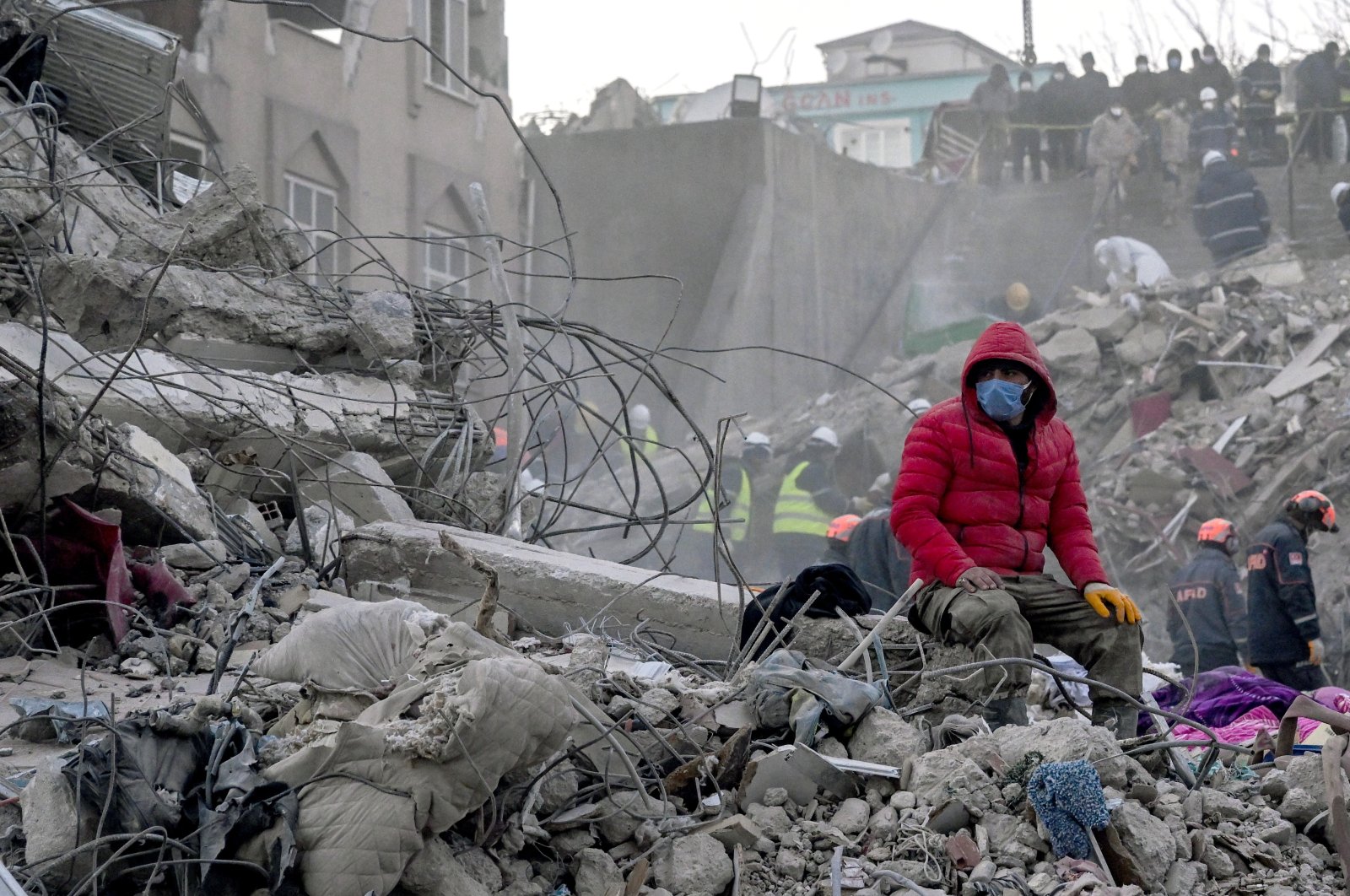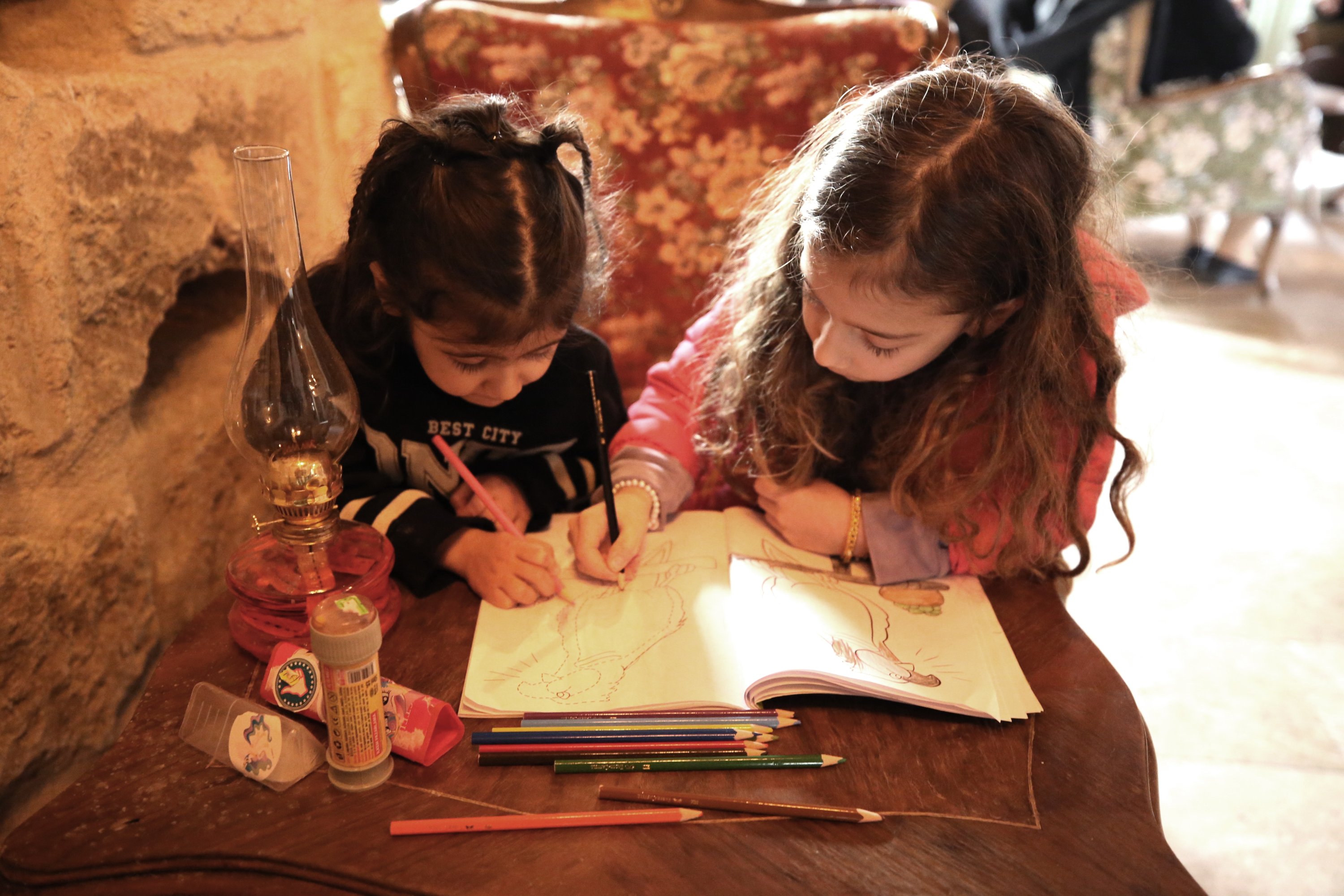
Earthquakes are not only destructive to buildings but also people's mental health as they can cause a range of emotional and psychological reactions, such as fear, anxiety and trauma, influenced by a variety of factors, such as the severity of the earthquake, the individual's prior experience with disasters and their overall level of resilience
Communication is crucial when responding to earthquake-related mental health problems in children and teens, in the aftermath of two major earthquakes in Türkiye's southeast, which not only caused widespread devastation across 11 provinces but also had a detrimental effect on people's mental health, an expert said Friday.
Pediatric psychologist Dr. Gülsen Erden highlighted the importance of correct communication with young people during such an extraordinary crisis.
Emphasizing that it is psychologically normal for anxiety levels to increase and for physical symptoms to manifest during these difficult days, Erden noted that the sense of shock caused by the disaster, coupled with extreme feelings of fear, anxiety, worry, guilt and helplessness, can lead to unresponsiveness or hypersensitivity in individuals. Repeatedly recalling the images of the earthquake, avoiding stimuli that trigger memories of the disaster, insomnia and withdrawal from social activities are some of the symptoms that may be observed.
Erden also explained that emotions and behaviors such as deep sadness, and quick and extreme anger are normal stress responses to abnormal situations that can occur during a crisis and may last for a long time. Therefore, it is essential to establish correct communication with children and adolescents to help them cope with the aftermath of the earthquake and the emotional distress it may cause.

Effects in children
According to Erden, children, like adults, can display significant stress reactions following traumatic events.
"Emotions such as fear, anger, sadness, anxiety, worry and guilt, as well as behaviors such as confusion, shyness, feelings of unease, excitement, hyperactivity, restlessness or overstimulation may be observed. However, the child's response to the trauma may be influenced by various factors, including their age, their subjective perception of the cause of the trauma (such as feeling responsible for the event), the loss of a loved one, observing adults struggling to cope or experiencing a physical injury," she said.
"In teens, on the other hand, typical reactions to traumatic events may include fear, restlessness, depression, self-blame, loss of interest in school and other activities, regressive behaviors, deterioration in sleep and appetite, sleep terror, aggression, low concentration, separation anxiety, withdrawal, feelings of loneliness and grief. It is important to remember that each child may have unique reactions to a traumatic event and may require different types of support and care. Therefore, it is essential to establish appropriate communication with children and teens to understand their reactions and support them," she added.
Experiencing difficult times
As Erden elaborated, children and teens who experienced earthquakes often struggle emotionally and are not fully equipped to comprehend the difficulties they are facing.
"Therefore, it is essential to establish a respectful, sensitive, understanding, sincere and compassionate relationship with them, regardless of their age. It is crucial to talk to them at eye level and to start the conversation by introducing yourself. During such conversations, it is crucial to listen to the child without interpreting or expressing surprise or pity," she said.
She also emphasized that children should be encouraged to express their questions, feelings and situations related to the traumatic event, without any judgment. However, it is important not to ask leading questions, such as "What did you do?" or "What happened to you?" to avoid triggering fear and anxiety in children who are reluctant to talk. Instead, she suggested offering children options such as painting, writing or playing games to help them express their emotions and experiences.
How to explain quakes to children?
Highlighting the importance of providing age-appropriate information about earthquakes to children, Erden noted that for young children, a simple and reassuring statement would be enough. "For example explaining the situation as 'There was an earthquake. On such occasions, the furniture in our house shakes and sometimes our walls can not resist these tremors. Yet earthquakes are rare natural occurrences like the snow winds,' can be helpful," she said.
"For elementary school children, explaining the science behind earthquakes and tectonic plates in simple terms can help alleviate their anxiety. It is important to emphasize that everyone in the family is safe and everything will be alright. However, it is crucial not to show distressing images or convey the disaster with adult concerns," she added.
Erden also suggested creating a calm and safe environment at home by reassuring children that they are not alone and that their feelings are normal. Families can engage in activities together, such as playing games or watching a movie, to promote a sense of togetherness and reduce anxiety. Additionally, maintaining normal routines and providing a sense of structure and predictability can be reassuring to children.
What should anxious individuals do?
Erden emphasized that it is essential to take care of mental health and well-being during times of crisis, both for children and adults. She suggests limiting screen time, using tried-and-tested calming techniques, spending time with friends and engaging in welfare activities, and sharing emotions.
In addition, she suggests that it is important to attempt to return to our old routines and habits, especially in terms of eating and sleeping patterns, if they have been disrupted by the crisis.
"Providing safe spaces and opportunities for children to play, interact with their peers, and express their feelings through art and writing can be effective in developing appropriate coping mechanisms," she said.
"For adults, it is crucial to avoid harmful behaviors such as alcohol or drug use and to stay away from rumors that easily spread on social media, ending up impacting our mental health negatively," she added.
